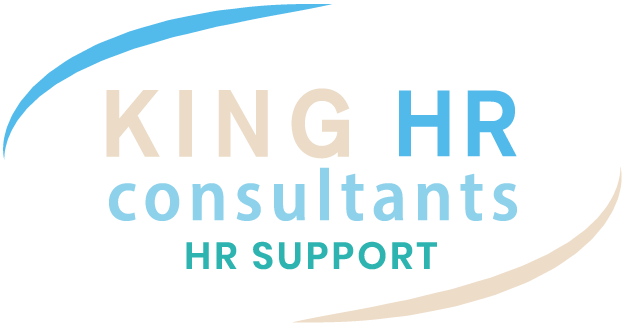The $305,000 Employment Law Reality Check: What every leader, and workplace professional must know
Recent NSW developments reveal critical gaps in employment law knowledge that are costing businesses hundreds of thousands of dollars, and these costs are entirely preventable.
Australia’s Recent Expensive Sexual Harassment Failure
In Magar v Khan, the Federal Court awarded one of Australia’s largest sexual harassment payouts, $305,000 to a young Nepalese woman working on a student visa. But this wasn’t just a legal victory; it was a masterclass in what happens when we ignore our legal obligations and HR systems and fail catastrophically.
Ms Magar endured relentless harassment from her manager at a Mad Mex franchise: sexualised comments, lewd jokes, and being shown pornography. When she tried to complain, she faced defamation threats, designed to silence her. The court found her manager exploited her vulnerability as a young migrant with limited support networks.
The damage breakdown reveals the true cost of failures to act and prevent such behaviours in the workplace:
- $160,000 for sexual harassment
- $90,000 for past economic loss
- $40,000 for future economic loss
- Additional amounts for victimisation and aggravated damages
But here’s what every business leader and workplace professional needs to understand: this wasn’t about one bad manager. The judgment revealed systemic failures to address the unwanted and inappropriate behaviour that could have been prevented.
The Policy Pressure Points
Meanwhile, NSW Premier Chris Minns has linked funding cuts to workers’ compensation reforms, stating that without changes to reduce psychological injury claims, businesses face a 36% premium increase. The state has contributed $6 billion to prop up the workers’ compensation scheme.
For business leaders and workplace professionals, this creates a perfect storm:
- Legal obligations are intensifying
- Insurance costs are skyrocketing
- Policy frameworks are shifting rapidly
- The stakes for getting it wrong have never been higher
What the Mad Mex case reveals about management system failures to follow workplace law especially in a franchise situation:
The Federal Court judgment exposes critical gaps that most HR teams would recognise in their own organisations:
Complaint Handling Failures:
When Ms Magar tried to report harassment, the response was defamation threats. This reveals a fundamental misunderstanding of legal obligations around complaint handling and victimisation protection.
Cultural Blindness:
The court found that senior staff regularly made derogatory comments about women, and management failed to intervene. This wasn’t isolated behaviour, it was an unchecked pattern that competent HR systems should identify and address.
Risk Assessment Gaps:
The vulnerability of migrant workers, particularly those on student visas, was completely overlooked. Effective HR teams understand these power dynamics and build protections accordingly.
Documentation Deficiencies:
The case reveals poor record keeping, and incident management, fundamental HR competencies, which could have changed the entire trajectory.
The Real Cost of Australian workplace law knowledge gaps:
When NSW Coalition backed proposed amendments requiring harassment victims to prove the accused knew their conduct was unwelcome, they’re making cases like Ms Magar’s much harder to pursue. Treasury estimates this would save the insurance scheme almost $800 million.
But consider what this means for Business leaders and workplace professionals:
- Higher legal standards for evidence gathering
- More complex investigation requirements
- Greater documentation obligations
- Increased personal liability for getting it wrong
The Accountability Problem that we must solve
Here’s the uncomfortable truth: Ms Magar’s $305,000 award raises serious questions about whether our current system works to prevent harm.
The accountability gap is stark:
- Does the money reach the victim after legal fees and administrative costs?
- Does the perpetrator face any direct consequences?
- Are corporate insurance policies just socialising the cost of individual bad behaviour?
- What’s the real deterrent effect when personal accountability gets diffused?
For business leaders and workplace professionals, this accountability gap creates both risk and opportunity
The risk is obvious inadequate systems lead to massive payouts. The opportunity is that proper employment law knowledge and early intervention can prevent these situations entirely.
What business leaders, workplace managers and teams need to know right now:
Current Legal Standards:
Sexual harassment law is evolving rapidly. The definitions, obligations, and procedural requirements that applied five years ago may no longer be sufficient.
Psychological Injury Claims:
The intersection between workplace investigations and workers’ compensation is becoming increasingly complex. Business leaders and workplace professionals need to understand how their response to complaints affects potential psychological injury claims.
Documentation Requirements:
Federal Court scrutiny reveals the evidentiary standards your incident records need to meet. “Common sense” documentation isn’t enough when facing legal challenges.
Vulnerable Worker Protections:
The Mad Mex case highlights specific obligations around migrant workers, young employees, and those in precarious positions. These aren’t just ethical considerations they’re legal requirements with significant penalties for non-compliance.
Breaking the Costly Cycle
The current approach:
Making claims harder to pursue addresses symptoms, not causes. Smart business leaders understand that prevention is always cheaper than compensation.
Prevention instead of Compensation:
Workplace culture programs, mandatory training, and early intervention cost far less than big payouts. More importantly, they target the source of the problem rather than managing its financial aftermath.
Personal Accountability Systems:
Effective frameworks for following Australian employment law ensure individual perpetrators face direct consequences, creating real deterrents rather than just corporate cost centres.
Proactive Risk Management:
Understanding your legal obligations before problems arise means you can build systems that prevent harm rather than just respond to it.
The Strategic Advantage of knowing and following Australian workplace law:
When governments balance worker rights against insurance premiums, and when legal standards continue to evolve, Australian employment law knowledge becomes a competitive advantage.
Organisations with excellent systems for following Australian legal obligations:
- Prevent expensive legal battles before they start
- Attract and retain better talent through safer workplaces
- Reduce insurance premiums through demonstrated risk management
- Build resilient cultures that adapt to changing legal requirements
Organisations with inadequate systems for following Australian workplace law:
- Face mounting legal costs and reputational damage
- Lose talented workers like Ms Magar to preventable harassment
- Pay premium increases to subsidise others’ poor practices
- Scramble to meet evolving compliance requirements
Your next steps as an employer, business leader:
The Mad Mex case and current policy debates reveal that knowledge of Australian employment law isn’t optional anymore, it’s essential business protection.
Key questions for your immediate review:
- How confident are you in your current harassment complaint procedures?
- Do your investigation protocols meet Federal Court evidentiary standards?
- Are your systems designed to protect vulnerable workers effectively?
- Can your documentation withstand legal scrutiny?
The real question isn’t whether we can afford to invest in proper Australian workplace law knowledge, it’s whether we can afford not to. When talented people are driven from workforces by preventable harassment, when small business programs get cut to fund compensation schemes, and when insurance costs drive policy decisions, we’re treating symptoms rather than causes.
The bottom line:
Understanding Australian employment law isn’t compliance; it’s about building organisations that thrive while protecting the people who make them successful.
Want to ensure your knowledge of Australian workplace law can prevent costly failures like the Mad Mex case? Join the waitlist for the comprehensive learn Australian Employment Law course. It’ll give you the tools to learn everything from harassment complaint handling to psychological injury obligations, giving you the practical skills to protect your workers and your organisation.
Sources:
Magar v Khan [2025] FCA 874; https://www.smartcompany.com.au/exclusive/nsw-business-connect-closure-workers-compensation-reforms-chris-minns/,
https://www.abc.net.au/news/2025-08-12/migrant-worker-sexual-harassment-court-win/105630956

